P-Cars And Perception
(Ryan sent this to me before the recent Adbusters piece, but perhaps it’s additionally relevant now — JB)
The Truth About Cars is that sometimes they tell us the truth about ourselves.
I rolled into Los Angeles one morning in a badly running 911. It was already hot, though the morning haze hadn’t yet burned off. The transition from the wide-open, high desert to the sudden congestion of the L.A. basin was disorienting. Still, I felt a tinge of excitement. I was on the West Coast, and I was there to pursue a girl.
Windows down, wing windows open (one of which sporting the de rigueur PCA sticker), I could clearly hear the misfire the flat six had developed somewhere in the desert. It still made sufficient power, but obviously something was wrong. The car was a ’74. Silver, euro headlights, Fuchs wheels, mismatched tires, badly split dashboard, short shift kit, high-bolstered cloth Recaros, a little rust, and to top it all off, a salvage title. It’s tough to buy a 911 with student loans.
A week earlier, I’d been thumbing through the Auto Trader magazine (that’s how we used to do it), hoping for a cheap 944 when I my glance fell to the little black and white thumbnail of this car. I was sure it was a misprint. I called on it immediately, then called my dad’s Porsche mechanic. “A 911 for $5000?” he inquired. “Yeah, will you take a look at it for me?” I asked. “Buy it” he said. “If it runs, the engine and tranny are worth that.” So I did.
Now, a week later, and eleven hundred miles away, the “it runs” part was dubious.
Los Angeles is a funny place. I don’t much care for it. Dave Duchovny’s character in the TV series Californication shares my sense of the city. I had recently moved from London, he from New York, and we both found the city much more confident in its appeal than we thought was warranted. (Interestingly, in the series, he too drives a Porsche, a beat-to-hell 964 cab, if I recall correctly.) To my mind, it is a city characterized by a culture without substance. A culture in fact so far removed from substance, people there often don’t recognize the difference between substance and non-substance.
Philosophers call the study of the relationship between signs and the things signified semiotics. Bear with me being arcane for a moment, as I think this is the way to describe my objection to Los Angeles. In L.A., the importance of the thing ‘signified’ has largely disappeared. The important value has dropped out of the equation. Now, people there traffic largely in an essentially meaningless jargon of ‘signs’ that don’t actually correlate to anything.
Are you an ‘actor’? Of course you are. Are you a ‘producer’? A model? Wealthy? 45 and not 25? Everyone has been pretending for so long, people have become desensitized. It’s perfectly natural to lie about what you do for a living, and how well you do it. (Spoiler alert: everyone actually works in a restaurant.) Fake it until you make it, right? Lease a new Range Rover, and park it in front of your dumpy shared apartment. It’s the appearance of wealth—denoting success!—which is important. Surely no one is smart enough to peek behind the curtain, to see through your little ruse.
In the midst of this din, this incessant and meaningless projection of symbols, one can scarcely communicate. After all, language, too, is a system of symbols. As Orwell wrote in his magnificent essay, “Politics and the English Language”, when you manipulate the correlation between language and states of affairs in the world, you lose the ability to communicate.
For many Angelenos, the idea that in other parts of the world, people derive goods not by passing legislation, but by actually working, is surprising. That people actually make things—objects, literature, non-online degrees, the yields of agriculture—all this is foreign. Why would you bother with that? Just pretend. It’s the sign, not the thing signified that matters.
What does this have to do with a badly-running 911? Well, as it happens, this is just the car to pry-open the dysfunction of the place. The car and I were the same age. The interior smelled not like a luxury car, but rather like an old Volkswagen (same vinyl, after all). The only leather in the car was on the steering wheel, and it was in rough shape. Yet people had been so conditioned to respond to symbols, that my 911 told people I was a producer (or something equally silly). “But you have a PORSCH! (sic)” “Uh, it’s as old as I am. The tires don’t even match.” That I was a marginally employed grad student simply did not compute.
People didn’t seem to realize how old it was. Now, I grant that Porsche has been very conservative in the styling of successive 911s, but surely even the untrained eye can spot a car from the early ‘70s. That someone would enjoy a 30 year old car—with no AC—for its own sake, was unheard of. The car, it seemed, was itself valueless. It carried great weight as a sign, however. People were so accustomed to responding to the sign, that they failed—sometimes entirely—to perceive the vehicle empirically presenting itself.
I found this perplexing.
The merits of the car—and in spite of its condition, it was a very cool little car—were completely occluded by the perceived significance of the car. Why would you have a Porsche if not to signal your wealth and success to those around you? What other possible purpose could there be?
Upon visiting a cousin in Orange County, his (physically enhanced) wife came bustling in: “Wow—whose Porsche is that?” Apparently, the social status of one of her husband’s friends (and so, by proxy, hers?) was about to go up. However, upon learning the answer, she was visibly disappointed. “Aren’t you some sort of theology student or something? Why would you have that car?”
The answer? Complex. Let’s summarize:
Dr. Porsche had a dream. (It was not nearly as profound as Dr. King’s, but it was not without merit.) In the early-mid twentieth century, sports cars were big. They had giant engines. Ferrari, Jaguar, and Mercedes vied for speed records in famous races along dangerous routes through the Alps. Dr. Porsche also wanted to win, but his philosophy was entirely different. He built a tiny, incredibly simple, lightweight sports car. Rather than a V12, or something equally monstrous taken from a post-war fighter plane, it featured an air-cooled four cylinder—configured horizontally. Its body was made of aluminum, and he avoided the extra weight of paint (which is why early P cars raced in silver—they were unpainted). The center of gravity was mere inches off the pavement. As a lad, I would often check out books from the local library. One was about Porsches. I recall studying the black and white photos of stern German men in lab coats beating aluminum panels by hand over wooden molds. The body was very simple, an inverted bathtub. Guess what? His cars could win.
Now, whether any of the above is actually accurate, it all sounds about right—doesn’t it? It’s more or less what I remember reading as an adolescent, and that’s the important point. It’s part of the Porsche mythos, and it’s why I would have a car like this.
My car—the ’74—was small, light, and silver. It made fantastic noises. Its 2.7 wasn’t especially powerful, but it was so light, it could walk a 3 Series. Or: the delicious banshee wail of the flat six at full chat convinced the other drivers it could. Same result. I got a lot of tickets in that car. This, roughly, is the response I’d have liked to have given to my busty friend. (Remember her? She’s three paragraphs above).
Where’s the disconnect? Let’s see if we can unpack it:
1. Small, iconoclast sports car = object of desire
If you miss the reason the car is desirable, and jump straight to the car as a signifier of something else, you really miss the point of the car. And look what else happens: generally speaking, you want wealth so that you can acquire neat things. Wealth is a sign that you as a person get to enjoy neat things. The neat things are the point. But if you miss the value of the things themselves, and see them only as signs of wealth, you’ve reversed the relationship between sign and thing signified, and you create for yourself a perpetual cycle of unfulfilling—because meaningless—acquisition. Get a major segment of the population of a large city participating in this confusion, and the term ‘Californicaiton’ begins to take on real meaning.
Now, obviously this sweeping characterization of Los Angeles is unfair. What I’ve written is by no means true of each of the city’s inhabitants; but if I were asked for an illustration of the point I’m making, this city would be definitely be exhibit A.
“Well”, I thought to myself, “so much for the socialite classes. But true automotive enthusiasts will understand”. With this consoling thought, I tracked down the local chapter of the PCA. I attended precisely one event. It consisted of a bunch of retired dentists talking about golf. They all but asked me to park my 911 in back, and out of their line of sight. It was only later that I learned of the POC, the group who actually liked to drive (even on tracks!) By then, however, I was over the girl I’d gone in pursuit of, and for that matter, L.A. in general. I sold the car for more than I paid for it, bought a high-mileage BMW E28 on Ebay, and left town in search of my own soul.
More by Ryan Murphy
Latest Car Reviews
Read moreLatest Product Reviews
Read moreRecent Comments
- Jalop1991 In a manner similar to PHEV being the correct answer, I declare RPVs to be the correct answer here.We're doing it with certain aircraft; why not with cars on the ground, using hardware and tools like Telsa's "FSD" or GM's "SuperCruise" as the base?Take the local Uber driver out of the car, and put him in a professional centralized environment from where he drives me around. The system and the individual car can have awareness as well as gates, but he's responsible for the driving.Put the tech into my car, and let me buy it as needed. I need someone else to drive me home; hit the button and voila, I've hired a driver for the moment. I don't want to drive 11 hours to my vacation spot; hire the remote pilot for that. When I get there, I have my car and he's still at his normal location, piloting cars for other people.The system would allow for driver rest period, like what's required for truckers, so I might end up with multiple people driving me to the coast. I don't care. And they don't have to be physically with me, therefore they can be way cheaper.Charge taxi-type per-mile rates. For long drives, offer per-trip rates. Offer subscriptions, including miles/hours. Whatever.(And for grins, dress the remote pilots all as Johnnie.)Start this out with big rigs. Take the trucker away from the long haul driving, and let him be there for emergencies and the short haul parts of the trip.And in a manner similar to PHEVs being discredited, I fully expect to be razzed for this brilliant idea (not unlike how Alan Kay wasn't recognized until many many years later for his Dynabook vision).
- B-BodyBuick84 Not afraid of AV's as I highly doubt they will ever be %100 viable for our roads. Stop-and-go downtown city or rush hour highway traffic? I can see that, but otherwise there's simply too many variables. Bad weather conditions, faded road lines or markings, reflective surfaces with glare, etc. There's also the issue of cultural norms. About a decade ago there was actually an online test called 'The Morality Machine' one could do online where you were in control of an AV and choose what action to take when a crash was inevitable. I think something like 2.5 million people across the world participated? For example, do you hit and most likely kill the elderly couple strolling across the crosswalk or crash the vehicle into a cement barrier and almost certainly cause the death of the vehicle occupants? What if it's a parent and child? In N. America 98% of people choose to hit the elderly couple and save themselves while in Asia, the exact opposite happened where 98% choose to hit the parent and child. Why? Cultural differences. Asia puts a lot of emphasis on respecting their elderly while N. America has a culture of 'save/ protect the children'. Are these AV's going to respect that culture? Is a VW Jetta or Buick Envision AV going to have different programming depending on whether it's sold in Canada or Taiwan? how's that going to effect legislation and legal battles when a crash inevitibly does happen? These are the true barriers to mass AV adoption, and in the 10 years since that test came out, there has been zero answers or progress on this matter. So no, I'm not afraid of AV's simply because with the exception of a few specific situations, most avenues are going to prove to be a dead-end for automakers.
- Mike Bradley Autonomous cars were developed in Silicon Valley. For new products there, the standard business plan is to put a barely-functioning product on the market right away and wait for the early-adopter customers to find the flaws. That's exactly what's happened. Detroit's plan is pretty much the opposite, but Detroit isn't developing this product. That's why dealers, for instance, haven't been trained in the cars.
- Dartman https://apnews.com/article/artificial-intelligence-fighter-jets-air-force-6a1100c96a73ca9b7f41cbd6a2753fdaAutonomous/Ai is here now. The question is implementation and acceptance.
- FreedMike If Dodge were smart - and I don't think they are - they'd spend their money refreshing and reworking the Durango (which I think is entering model year 3,221), versus going down the same "stuff 'em full of motor and give 'em cool new paint options" path. That's the approach they used with the Charger and Challenger, and both those models are dead. The Durango is still a strong product in a strong market; why not keep it fresher?



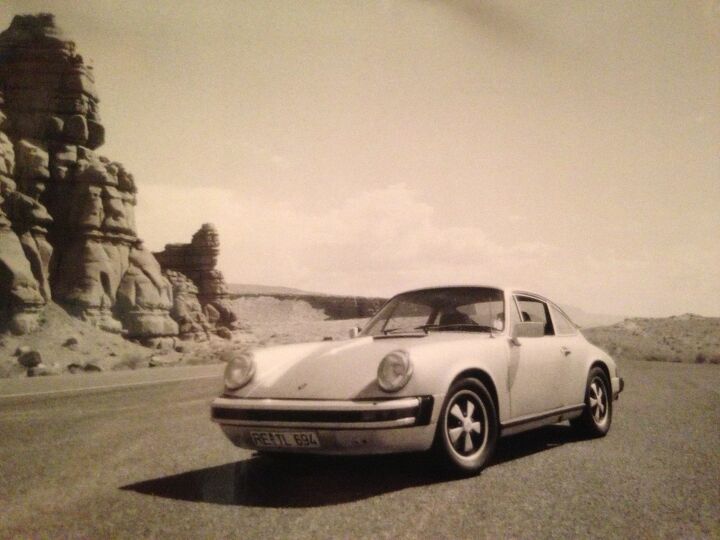













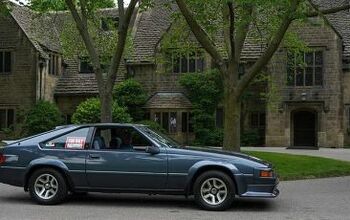
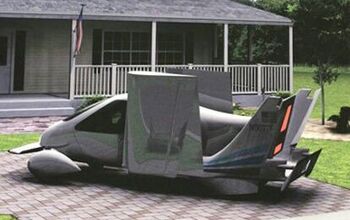
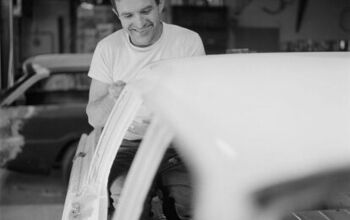
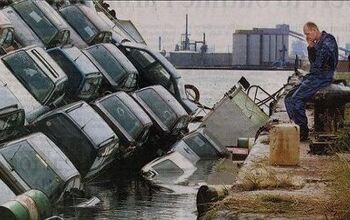













Comments
Join the conversation
In general, I couldn't agree more with your characterization of LA. But holy cow, what's that on your shoulder? Oh, it's a chip. And a very big one!
In a puritanical society such as America, the purpose of having a Porsche is not to "signal your wealth" as you assert, it's to signify that you are one of the elect. Even you've never darkened a church doorstep, you know that your possessions have no value beyond asserting the fact that you've been saved. So you're obligated to purchase that house in the suburbs and park a silver-colored SUV in front of it. If you follow a different path, perhaps studying idealism, collecting crucifixes and driving a Barbie Edition FIAT 500, you've publicly admitted that wish to be burned at the stake.